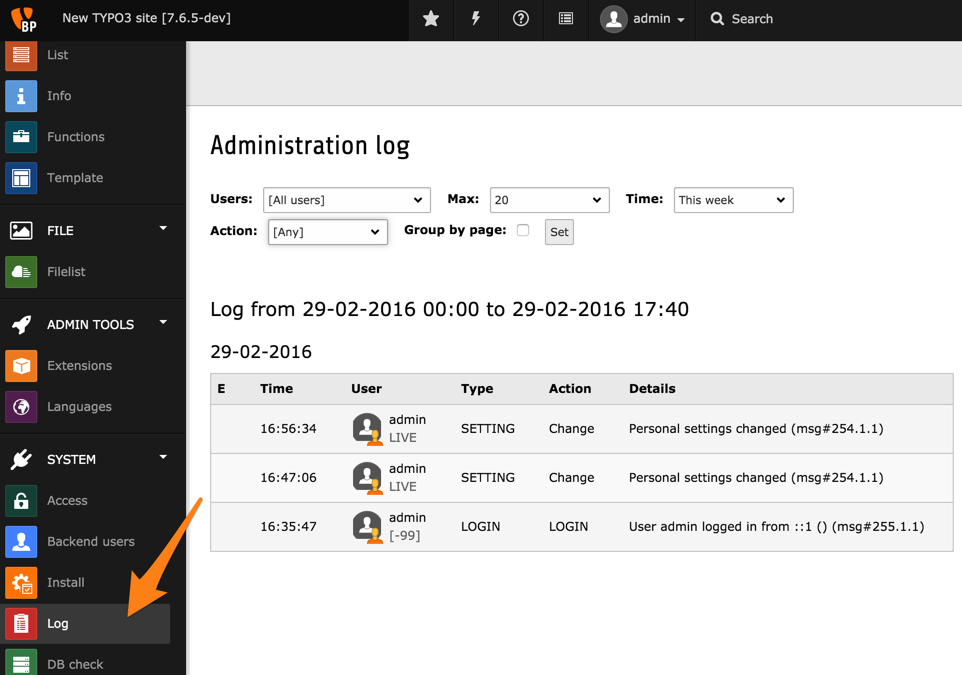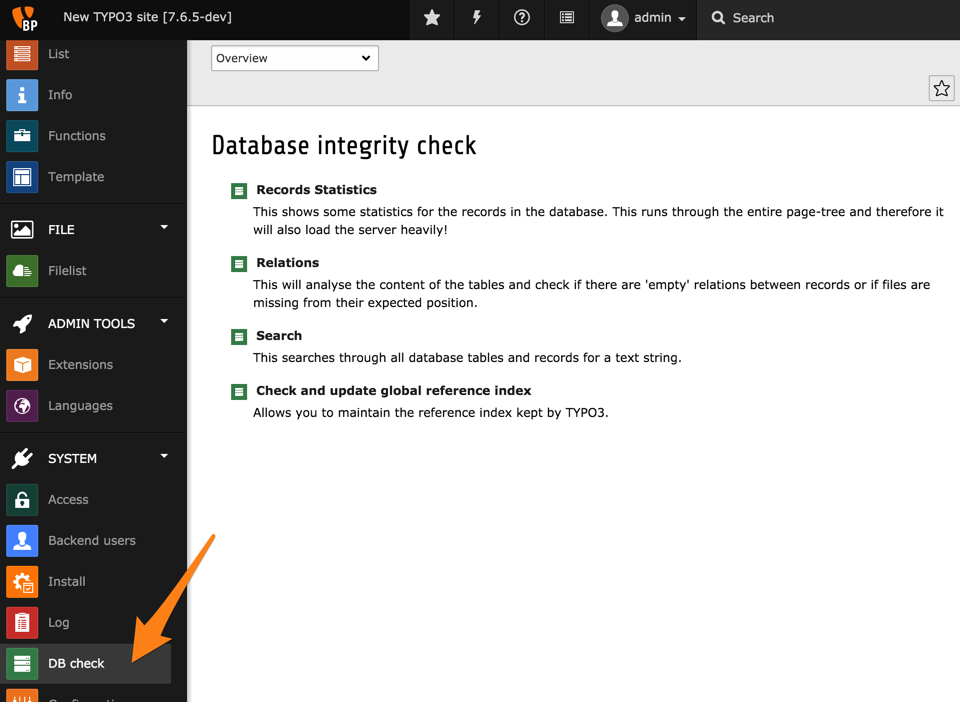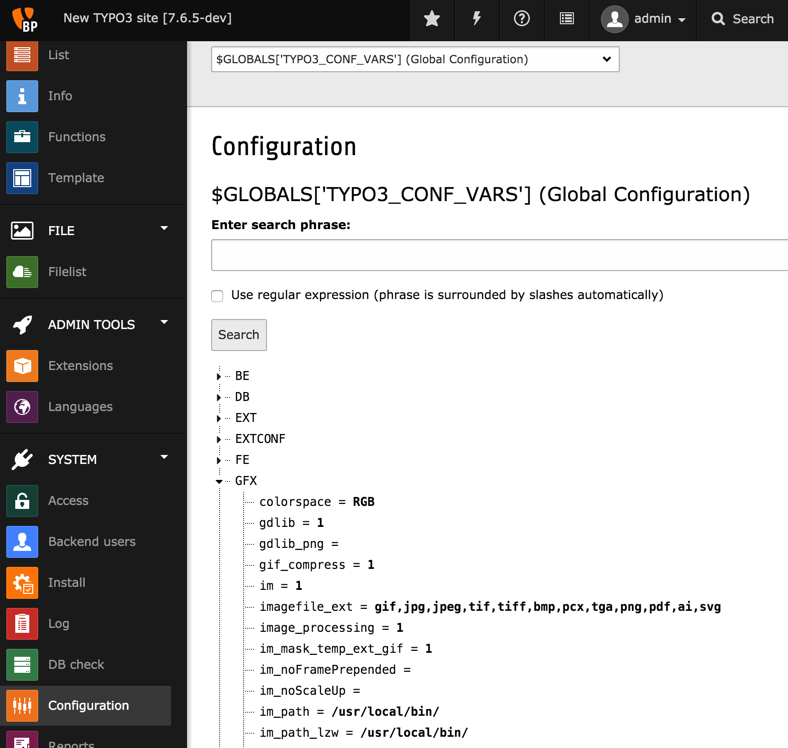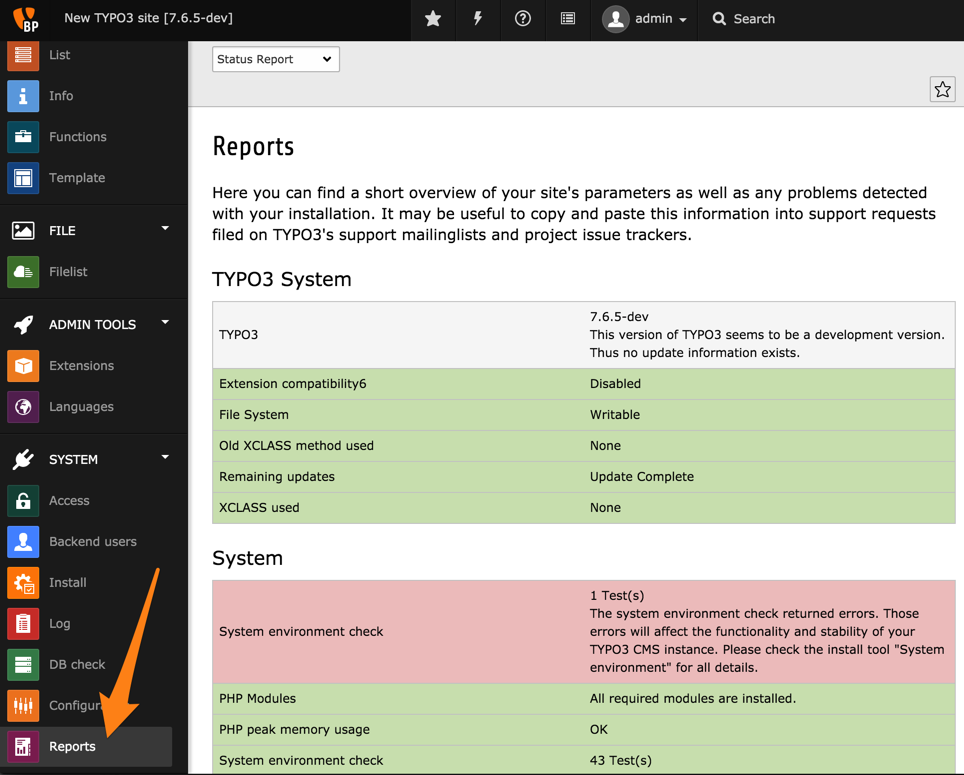Attention
TYPO3 v10 has reached end-of-life as of April 30th 2023 and is no longer being maintained. Use the version switcher on the top left of this page to select documentation for a supported version of TYPO3.
Need more time before upgrading? You can purchase Extended Long Term Support (ELTS) for TYPO3 v10 here: TYPO3 ELTS.
System Modules¶
Important
This chapters cover modules that will only be available for backend users with "admin" access privileges.
In the User Management chapter we covered the Access and Backend Users module. In this section we take a look at the remaining modules.
Log¶
The TYPO3 CMS backend logs a number of actions performed by backend users: login, cache clearing, database entries (creation, update, deletion), settings changes, file actions and errors. A number of filters are available to help filter this data.

DB Check¶
Important
"DB Check and Configuration are only available if the system extension "lowlevel" was installed and activated.
For Composer based systems (see also Extension Installation):
composer req typo3/cms-lowlevel
The Database (DB) Check module offers four functions related to the database and its content.

- Record Statistics
Shows a count of the various records in the database, broken down by type for pages and content elements.
- Relations
Checks if certain relations are empty or broken, typically used to check if files are being referenced.
- Search
A tool to search through the whole database. It offers an advanced mode which is similar to a visual query builder.
- Check and update global reference index
TYPO3 CMS keeps a record of relations between all records. This may get out of sync when certain operations are performed without the strict context of the backend. It is therefore useful to update this index regularly.
Configuration¶
The Configuration module can be used to view the various
configuration arrays used by the CMS. It is not the goal
of this tutorial to describe the role of each of these arrays,
you can discover their function as you dig deeper into
TYPO3 CMS. Let's just mention that the $GLOBALS['TYPO3_CONF_VARS']
contains global configuration values.

Reports¶
The Reports module contains information and diagnostic data about your TYPO3 CMS installation. It is recommended that you regularly check the "Status Report" as it will inform you about configuration errors, security issues, etc.

